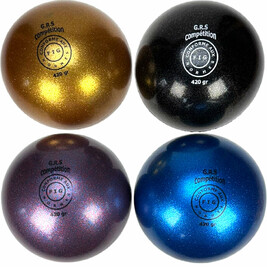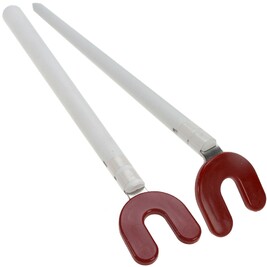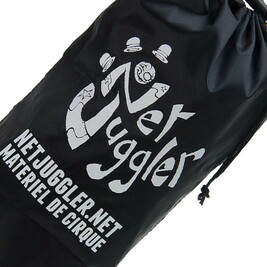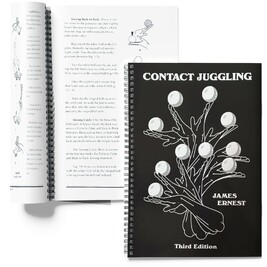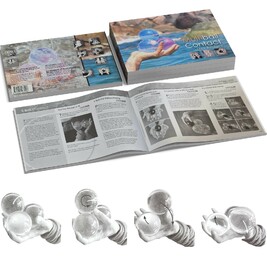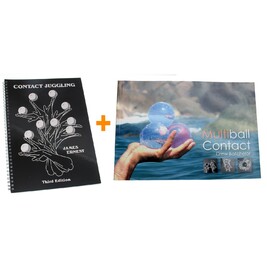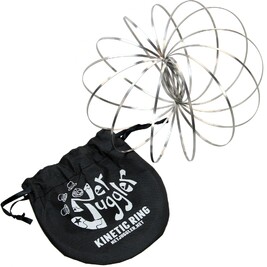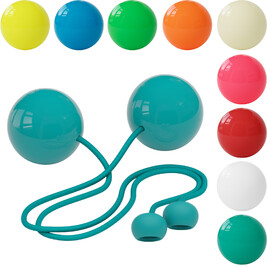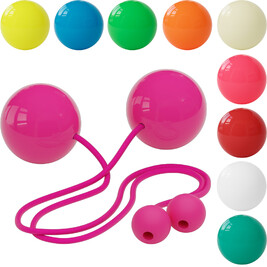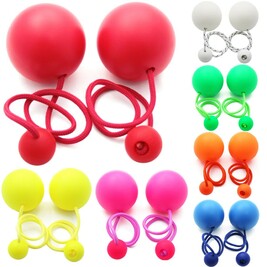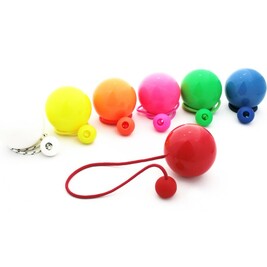Stage Balls
Cyrille Humen - extract from the Visual Juggling DVD, supported by NetJuggler.
Contact juggling:
Stage balls are typically used to learn the contact juggling discipline, a practice where the balls roll across the body.
To get started, we advise you to opt for a 100mm diameter ball. This diameter will facilitate the learning of movements. If your budget allows it, we even recommend opting for balls with a minimum weight of 200 grams. A heavier ball will indeed be more stable and more manageable.
In addition, with a heavier ball, you will approach the weight of an acrylic ball.
Small sizes for juggling

The juggling stage balls are specially designed to offer a unique visual and tactile experience. Made by rotational molding, this allows the center of the balls to be empty, their weight is determined by the thickness of the wall. Thus, for equal size, the heavier a ball is, the firmer it will be to the touch.
Smaller diameters, such as the 65mm and 70mm balls, are ideal for classic juggling, offering an excellent grip, particularly suitable for small hands and young children. The 80mm balls provide a stronger visual impact thanks to their large size, although their handling requires more skill. They are also ideal for creating contact bolas.
Finally, diameters greater than 80mm (further down this page) are intended for contact disciplines for a spectacular effect and large-scale performances.
Stage balls don't have a reputation for being the most enjoyable to juggle. Whether you are a beginner or an experienced juggler, our formulas have evolved in 2022/2023 for softer materials that are less aggressive on the hands, especially when the balls fall from high into your hands.
Contact and contact bolas

90mm: juggling, contact and contact bolas
The 90mm stage balls from the Éozoé brand are perfectly designed for several disciplines: juggling , contact , as well as to be integrated into contact bolas . Thanks to their 90mm diameter, they offer an imposing visual and an ideal mass to make precise stops, which adds impact to your performances. Their soft surface ensures maximum comfort, especially for contact practices where stops on the body or head are frequent. These balls use a unique PVC recipe , inspired by that used to make balloons, which sets them apart from our other stage balls and gives them a texture perfectly suited to these specific uses.
100m: 180g or 210g?
The 100mm stage balls offer two weight options: 180g and 210g . The 210g version is particularly recommended for contact juggling , offering a good grip and optimal control for fluid movements. The lighter version, at 180g , is ideal for contact bolas , offering a great visual while reducing fatigue during training thanks to a lower mass.
Finish: matte or glossy?
As for the finish , you have the choice between a matte or glossy version. The matte finish is ideal for those who juggle with several balls at the same time, as it prevents the balls from sticking together, unlike the glossy finish. The following concerns the use on contact bolas: for specific techniques such as contact roll or Fish tail , the matte finish is also recommended, as it offers a better grip on the skin. On the other hand, balls with a glossy finish can tend to slip, which can complicate certain contact movements.
90mm suede stage ball éoZoé
To begin contact juggling or to manufacture your poi. 170g. Made in France.
100 /210g Eozoé shiny stage ball
For contact juggling initiation, (before practicing with an acrylic ball). 210g Made in france.
Eozoé suede stage ball 100 /180g
For manufacturing light contact poi, suede finition. 180g. Made in France.
Eozoé 100 /210g suede stage ball
To learn contact juggling. 210g, suede finition. Made in France.
Eozoé glitter 100/200g
Glitter stage ball for contact juggling, shiny finition. 200gr. Made in France.
Sil-x bullets are also stage bullets

78mm Silx ball by Play
Recommended ball for juggling with 1 to 7 balls. They will be too large to juggle with more balls.
Body rolls & spinning

Body roll practice
Body roll is a contact juggling technique that involves rolling a ball smoothly across different parts of the body, such as the arms, shoulders, or chest. This visually captivating discipline requires great skill and coordination to guide the ball without it falling. Using a body roll ball larger than 100mm in diameter is recommended for this practice, as a larger ball provides increased stability and better control when moving across the body. Here we offer the 130mm ball from Play for this practice.
Spinning practice
Ball spinning is a juggling discipline that consists of spinning a ball or balloon on the tip of the finger or on other parts of the body, creating impressive visual effects. There are practitioners who use 100mm stage balls but it is very difficult with such small balls. Balloons are used more because more weight and a larger size will allow better inertia which will provide better balance.
Bags, books and accessories
Contact balls
Importance of size selection
Contact balls allow for smooth handling and precise trajectories. The smaller and lighter 80mm balls are perfect for beginners as they reduce the risk of collisions and are less tiring to handle, making them ideal for long training sessions or for a practice oriented towards fast spinning . On the other hand, larger balls , such as those of 90mm and 100mm , offer better control thanks to their greater weight which improves the precision of trajectories and stops, although they are heavier to handle.
More details still on the size of the balls used on the bolas
The 90mm bolas are the most versatile, offering an excellent compromise between lightness and precision. For more experienced jugglers looking for increased precision, the 100mm balls are ideal: although their weight and imposing size make them more demanding, they allow for cleaner stops and more controlled movements, especially in contact routines. These different sizes of bolas thus meet the needs of each level, from beginners to experts, with a choice adapted according to the desired technique and intensity.
80mm professional contact poi
Professional contact poi with silicone handles (mini bouncing ball).
Bertrand Caudevelle of the "Compagnie tas pas dit balle" :
Best selling of the moment
90mm suede stage ball éoZoé
To begin contact juggling or to manufacture your poi. 170g. Made in France.
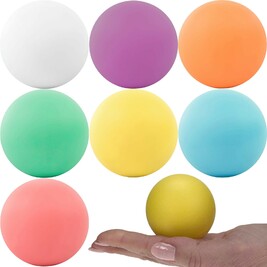
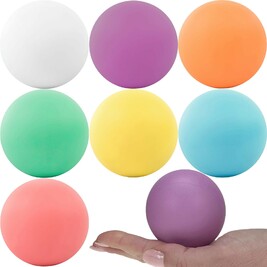
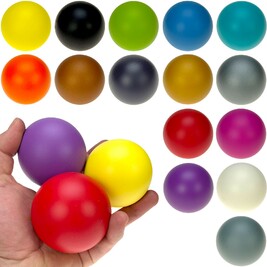
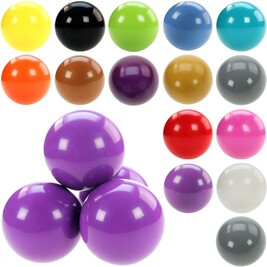
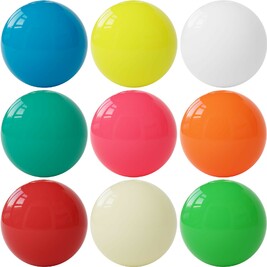
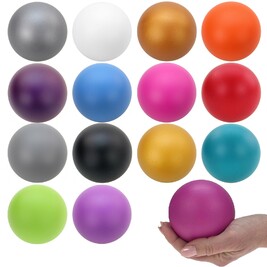
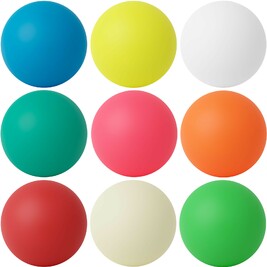
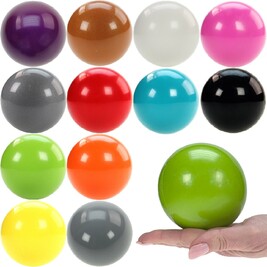
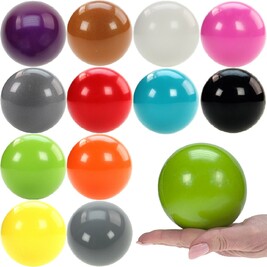
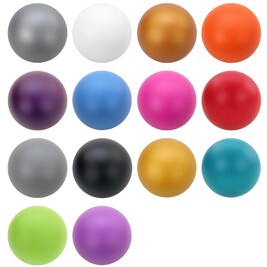
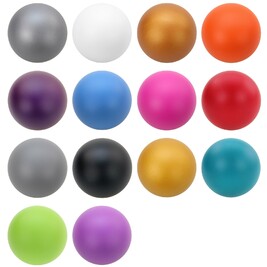
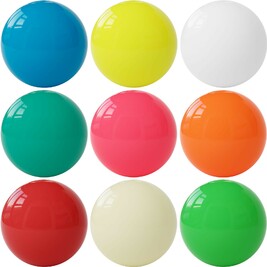
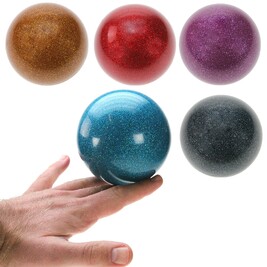
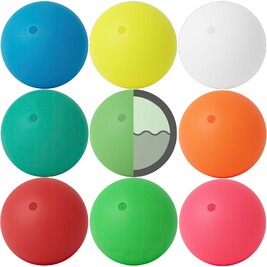
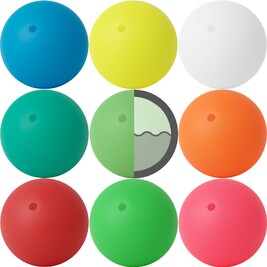
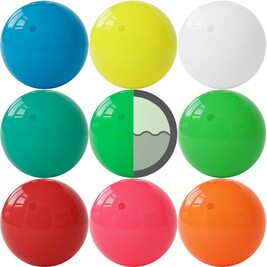
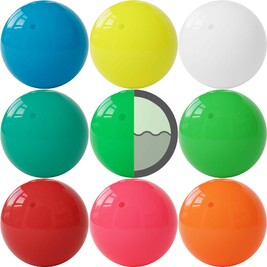
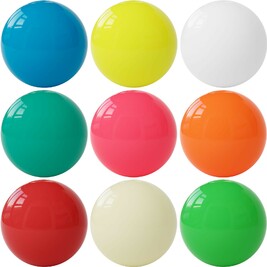
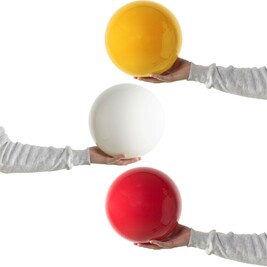
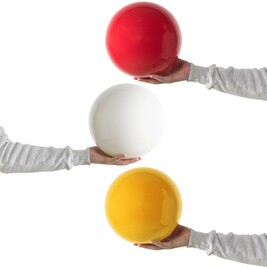
![Ø160mm GRS Ball [360g] Ø160mm GRS Ball [360g]](https://photos.netjuggler.net/BallonsGRSPVC/minia/BallonsGRSni160mm360g1.jpg)
![Ø190mm GRS Ball [420g] Ø190mm GRS Ball [420g]](https://photos.netjuggler.net/BallonsGRScomptition/minia/BallonsGRScompntitionni190mm420g1.jpg)
